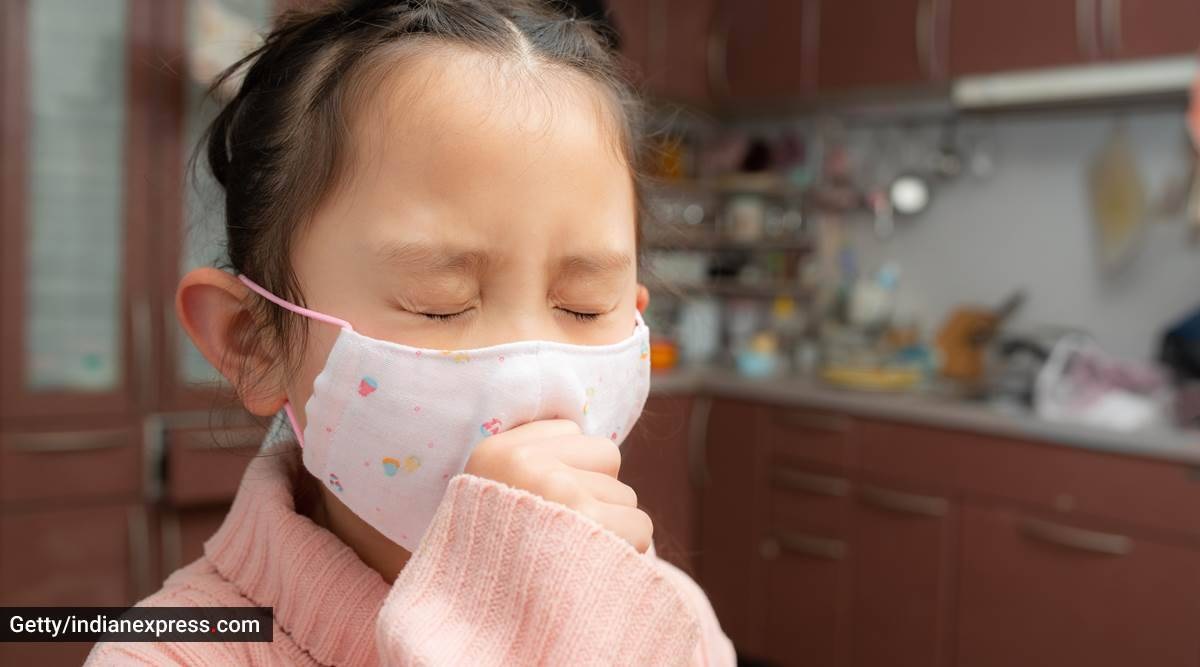May 18, 2021 3:08:53 am
 Parental loss can have devastating effects on children’s social, emotional and cognitive growth.
Parental loss can have devastating effects on children’s social, emotional and cognitive growth. (Written by Anurag Kundu)
Those succumbing to Covid-19 and those requiring hospitalisation are the most visible victims of this catastrophic pandemic, which has seen over 2.7 lakh deaths so far. The loss of livelihood and prevalent hunger are its other visible manifestations. But there are many invisible victims, mainly children.
Parental loss can have devastating effects on children’s social, emotional and cognitive growth. It adversely affects their mental health, inducing anxiety, depression and sleep disturbances and often worsens a family’s economic status, resulting in children’s poorer academic performance and school drop-outs. There is a greater risk of substance abuse among children who drop out of school and adolescents who lose parents also display more sexually risky behaviours.
All of this should worry us. Unfortunately, most governments’ approach towards these concerns has been non-existent or just flawed.
The first phase of the pandemic was met with silence on this subject by the central and state governments, as is clear from three glaring pieces of evidence.
First, a majority of states did not declare child-related services as essential during lockdowns, indicating that this group did not cross the minds of policymakers. Second, there was no scheme or policy announced for enabling the rest of the family to raise children. Even the paltry sum of Rs 2,000 for children sent home from the child care institutions required the Supreme Court’s intervention. Third, the routine immunisation services came to standstill and no contingency plan was put in place. Although the lockdown was gradually lifted from July onwards, the children’s immunisation programme remained low on priority and the Centre launched an intensified immunisation programme only from February 2021. Nothing had prevented state governments from intensifying their immunisation programmes on their own as health is a state subject. But little discussion happened and even less action.
The next phase of the pandemic saw some activity. Besides the Centre’s intensified immunisation programme, different state governments attempted to bridge the gap on immunisation. This phase also witnessed nearly 1,00,000 deaths in just 30 days. Driven by a mix of concern for the children left behind as well as mounting political pressure, the Centre and state governments are now publishing advertisements raising awareness about the adoption process, SOS helplines are being instituted, and policies have been announced that range from financial assistance to free ration.
This is an improvement but the approach is flawed. Consider these scenarios:
Scenario 1: Governments publish advertisements asking people to report children who have lost both or one parent. There’s nothing against this, as people need assurances and there are always people in distress who haven’t been documented and need information for support. However, the government need not primarily rely on providing support through helplines, but should proactively reach out to those in distress using its database of Covid-19 deceased, which has addresses and contact details. This is an approach adopted by the Delhi Commission For Protection of Child Rights (DCPCR), Government of Delhi.
Scenario 2: As many as five states have announced cash transfers for children who lost parents to Covid-19. More are likely to follow. Cash transfers may prove crucial in mitigating the risks that parental loss likely brings. There is substantial evidence of a positive impact of cash transfers on a child’s health. However, cash transfers are often aimed at increasing schooling years for children. It is worth reflecting on whether they are effective in keeping the child from having to work as labour in order to take care of the additional costs due to schooling. Consequently, children attend school less, and perform poorly, as much of their time post-school is spent as labour. This is even more pronounced in cases of secondary and senior secondary grades.
Historical data suggests that the problems go beyond paying for costs. Take the case of Right to Education section 12(1)(c) under which 11 states provide free education to orphans in private schools of their choice. The purpose is to keep children in school for as long as possible. However, results betray the policy intent. Despite confirmed allotments of seats in private schools and the guarantee of the law enforceable by the judiciary, admissions have happened in less than 35 per cent of the cases. The resolution of these questions is critical to the design of the financial assistance programme.
Scenario 3: Nearly all the states have programmes to support families wherein a child has lost one parent. Most programmes are designed to support the widow and her children and provide cash transfers and entitlements under different schemes of the government. However, those eligible for these benefits have shared their experiences of running from pillar to post to submit an endless list of documents. I do not want to jump the gun here as not a single government has notified a scheme for financial assistance to orphans as yet. I only argue that it would be more appropriate for the governments to use their databases efficiently to provide an easier, better experience to the family. There is no need to insist on a Covid-19 positive report, and death certificates as proof, as the different state governments already have this information.
It is true that Covid-19 is not caused by governments but it has evolved as a disaster because of our governance or the lack of it. We will overcome the virus sooner or later but at what stage Covid-19 ceases to be a disaster remains to be seen. Time will judge us all, more cruelly than we think.
The writer is Chairperson, Delhi Commission For Protection of Child Rights, Govt of Delhi. Views are personal
- The Indian Express website has been rated GREEN for its credibility and trustworthiness by Newsguard, a global service that rates news sources for their journalistic standards.

